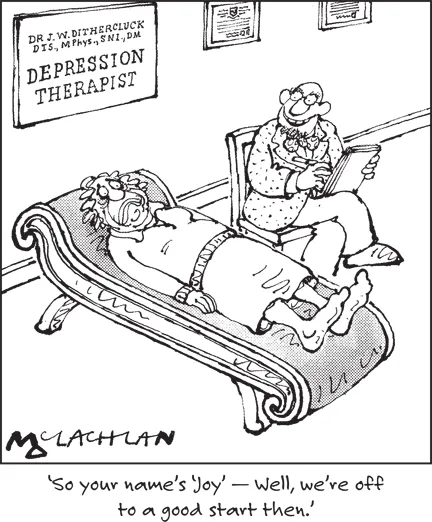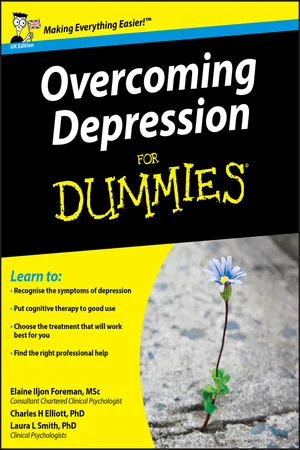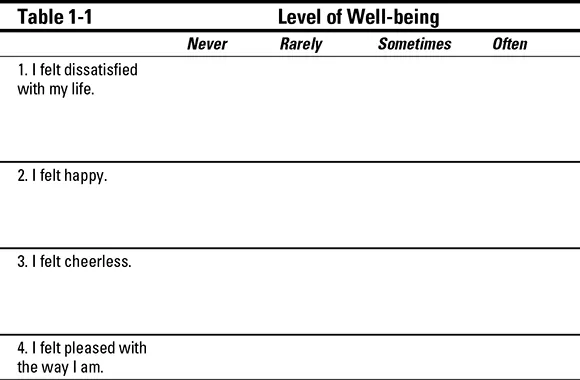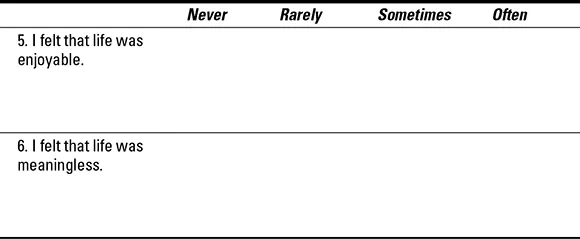

Overcoming Depression For Dummies, UK Edition
- English
- ePUB (mobile friendly)
- Available on iOS & Android
Overcoming Depression For Dummies, UK Edition
About this book
Up to 1 in 5 people in the UK suffer from diagnosable depression (bbc.co.uk) – that's approximately 12 million people. Depression takes multiple forms, including seasonal affective disorder, bipolar disorder, and postnatal depression. Research by the BBC claims that up to 75% of sufferers are not receiving any form of professional medication or therapy, which strongly suggests that self-help is often a preferred course of action.
Overcoming Depression For Dummies outlines practical methods for recognising and managing the symptoms of depression for those readers who might be too scared to go to their GP, who want to know more about the illness before they seek professional medical guidance, or for those who are just curious about depression and what it means.
Overcoming Depression For Dummies:
- Is written by an expert team of clinical psychologists and provides step-by-step guidelines on proven therapeutic exercises and ways to implement positive psychology methods
- Provides sound advice on nutrition, relaxation and support, to help make those vital first steps towards a happier life
- Gives comprehensive information on the wide variety of prescription medication and complementary therapies available, including their effectiveness and side effects
- Is aimed at people suffering from depression looking for straightforward, realistic advice and also loved ones and parents of those suffering from depression wanting to better understand the condition and find out how they can help.
Tools to learn more effectively

Saving Books

Keyword Search

Annotating Text

Listen to it instead
Information










Table of contents
- Cover
- Table of Contents
- Title Page
- Foreword
- Introduction
- Part I: Discovering Depression and Designing Defences
- Part II: Seeing Things More Clearly: Cognitive Therapy
- Part III: Actively Combating Depression: Behaviour Therapy
- Part IV: Adjusting to Changing Relationships
- Part V: Full-Bodied Assault: Biological Therapies to Fight the Physical Foe
- Part VI: Life After Depression
- Part VII: The Part of Tens
Frequently asked questions
- Essential is ideal for learners and professionals who enjoy exploring a wide range of subjects. Access the Essential Library with 800,000+ trusted titles and best-sellers across business, personal growth, and the humanities. Includes unlimited reading time and Standard Read Aloud voice.
- Complete: Perfect for advanced learners and researchers needing full, unrestricted access. Unlock 1.4M+ books across hundreds of subjects, including academic and specialized titles. The Complete Plan also includes advanced features like Premium Read Aloud and Research Assistant.
Please note we cannot support devices running on iOS 13 and Android 7 or earlier. Learn more about using the app